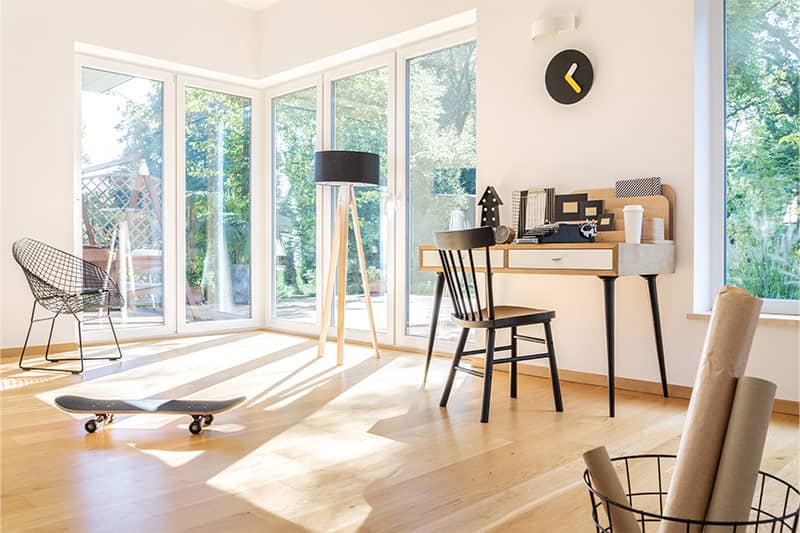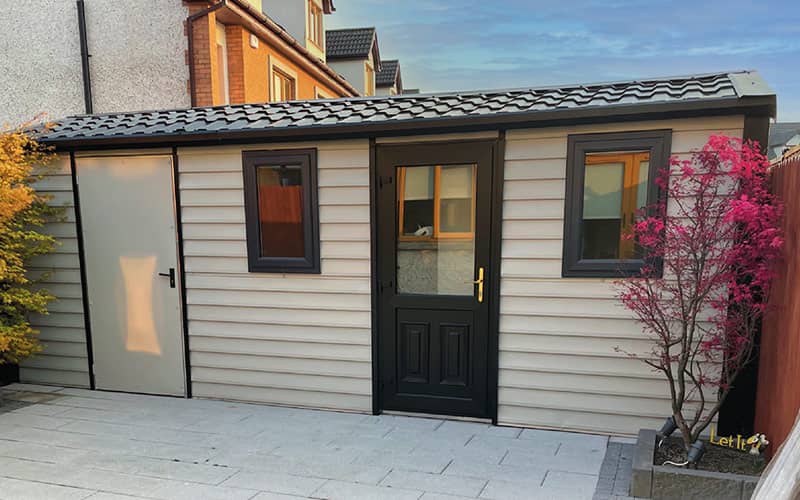Transforming Your Garden Shed into a Home Office: A Step-by-Step Guide

Creating a Productive Workspace in Your Garden Shed
In recent years, the trend of working from home has gained significant momentum, driven by technological advancements and changing work cultures.
With this shift, many people are looking for creative ways to establish dedicated workspaces within their homes. One increasingly popular solution is transforming a garden shed into a functional and stylish home office.
This guide will walk you through the process, step by step, to help you create a productive workspace just steps from your door.
Step 1: Planning and Preparation
Assessing Your Needs and Space Requirements:
Before starting your garden shed transformation, it’s essential to determine your specific needs. Consider the type of work you do, the equipment you need, and how much space you’ll require. A clear understanding of your requirements will guide your planning and help ensure your new office meets all your needs.
Budgeting for the Transformation
Setting a budget is crucial for any renovation project. Outline all potential expenses, including insulation, electrical work, furniture, and decor. Remember to factor in any unexpected costs that might arise during the project. A well-planned budget will help you manage your finances and avoid overspending.
Step 2: Insulation and Weatherproofing
Importance of Insulation for Year-Round Use
To use your garden office comfortably throughout the year, proper insulation is essential. Insulation helps maintain a consistent temperature, keeping the space warm in winter and cool in summer. It also aids in soundproofing, ensuring a quiet work environment.
Options for Insulating Walls, Floors, and Roofs
There are various insulation materials available, including fiberglass, foam boards, and spray foam. Each has its benefits and installation methods. For walls, consider fiberglass batts or rigid foam boards. For floors, insulated panels or foam boards can provide effective insulation. The roof can be insulated using foam boards or spray foam to prevent heat loss.
Weatherproofing Tips to Protect Against the Elements
Weatherproofing your garden shed is vital to protect it from moisture and drafts. Seal any gaps or cracks in the walls, floors, and roof. Install weatherstripping around doors and windows to keep out drafts. Consider using a vapour barrier to prevent moisture from entering the shed and causing mold or mildew.
Step 3: Electrical Setup
Planning the Electrical Layout
A well-planned electrical layout is essential for a functional home office. Determine where you need power outlets for your computer, printer, and other equipment. Plan for adequate lighting to create a comfortable work environment. If you plan to install an air conditioner or heater, ensure your electrical system can handle the load.
Installing Power Outlets, Lighting, and Internet Connectivity
Hire a licensed electrician to install power outlets and lighting fixtures. Ensure there are enough outlets to accommodate all your devices without overloading the circuits. For internet connectivity, consider running an ethernet cable from your home to the shed for a stable connection. Alternatively, you can use a Wi-Fi extender to boost the signal.
Safety Considerations
Safety should be a top priority when setting up your electrical system. Ensure all wiring is up to code and properly grounded. Use surge protectors to safeguard your equipment. Install smoke detectors and fire extinguishers in your garden office for added safety.
Step 4: Interior Design
Choosing the Right Furniture for Comfort and Productivity
Selecting the right furniture is crucial for a comfortable and productive workspace. Invest in an ergonomic chair that supports good posture. Choose a desk with ample space for your computer, paperwork, and other essentials. Consider adding a filing cabinet or shelves for additional storage.
Ergonomic Considerations for Office Setup
An ergonomic office setup can prevent strain and injury. Position your computer monitor at eye level to reduce neck strain. Use a keyboard and mouse that promote a natural hand position. Arrange your furniture to allow for easy movement and access to frequently used items.
Storage Solutions to Maximise Space
Efficient storage solutions can help you keep your workspace organized and clutter-free. Use shelves, cabinets, and storage bins to store office supplies and documents. Consider multi-functional furniture, such as a desk with built-in drawers or a bookshelf that doubles as a room divider.
Step 5: Heating, Ventilation, and Air Conditioning (HVAC)
Options for Heating
Maintaining a comfortable temperature is essential for a productive work environment. For heating, consider electric heaters, underfloor heating, or a small wood-burning stove. Each option has its pros and cons, so choose one that fits your needs and budget.
Ensuring Proper Ventilation
Proper ventilation is crucial for air quality and comfort. Install windows that can be opened to allow fresh air in. Consider using a ventilation fan to remove stale air and bring in fresh air. This is especially important if you use any heating or cooling devices that may affect air quality.
Adding Air Conditioning for Comfort
To stay cool during the summer months, consider installing an air conditioner. Portable air conditioners or window units are cost-effective options for small spaces. Ensure the unit is appropriately sized for your shed to maintain an efficient cooling system.
Step 6: Personalisation and Aesthetics
Decorating Tips to Create an Inspiring Work Environment
Creating an inspiring work environment can boost your productivity and creativity. Choose a color scheme that promotes focus and calmness, such as blues, greens, or neutrals. Add personal touches like artwork, plants, and photos to make the space feel inviting and uniquely yours.
Choosing Color Schemes and Decor That Promote Productivity
Color can significantly impact your mood and productivity. Soft, muted colors like pale blue or green can create a calming atmosphere. Brighter colors like yellow can stimulate creativity, while neutral tones can provide a balanced backdrop for your work.
Adding Personal Touches to Make the Space Your Own
Personalizing your garden office can make it a more enjoyable place to work. Add items that reflect your personality and interests, such as framed artwork, decorative cushions, or a stylish rug. These touches can make your office feel like a welcoming and inspiring space.
Step 7: Security and Privacy
Installing Locks and Security Systems
Security is an essential consideration for your garden office. Install sturdy locks on doors and windows to deter intruders. Consider adding a security system with motion detectors and cameras for added protection. A well-secured office will give you peace of mind and protect your equipment and documents.
Soundproofing Options for Privacy and Concentration
Soundproofing your garden office can enhance privacy and concentration. Use acoustic panels or foam to reduce noise from outside. Heavy curtains or rugs can also help absorb sound. Soundproofing ensures a quiet and distraction-free work environment, allowing you to focus on your tasks.
In Conclusion …
Transforming your garden shed into a home office is a rewarding project that can provide a dedicated workspace just steps from your door. By following these steps, you can create a comfortable, functional, and inspiring office that meets your needs. Whether you’re working from home permanently or occasionally, a garden office offers a unique and effective solution.
Start Your Garden Room Journey Today
We offer a nationwide service
Are you ready to elevate your outdoor space with a bespoke garden room, compact shed, garage or garden building?
Together, we’ll create a building that perfectly captures your vision and enhances your lifestyle.
Contact our friendly team at Urban Garden Sheds to discuss your ideas and receive a personalised quote.

A Versatile Garden Room Office & Storage Space: A Custom Fit-Out Case Study
Our customer approached us with a vision for a multi-functional garden room that would serve as both a home office and storage space. They wanted to maximise the utility of their 22′ x 8′ garden building while maintaining a comfortable, insulated environment.
Go to article